
In recent years, carbonated water has become a popular choice for many due to its refreshing taste and zero-calorie content. Not only is it a common choice in restaurants and cafes, but many households are also making carbonated water a part of their daily beverage routine. With growing health consciousness, more people are opting for carbonated water over sugary sodas to reduce their sugar intake. Economically, the cumulative cost of frequently buying bottled carbonated water adds up, prompting many to consider more cost-effective solutions. When choosing carbonated waters, it's important to consider health aspects such as artificial flavoring and added sodium, and to read labels carefully to understand the composition of different types like club soda and sparkling mineral water. This brings us to the topic of home carbonation and the benefits of using the best soda maker available. Does carbonating water at home make it cheaper? We will explore this question by examining equipment costs, store-bought water costs, and long-term usage.
Equipment and Costs for Home Sparkling Water Maker
The key to making carbonated water at home lies in choosing the right carbonation machine, such as an electric soda maker. Various brands and models are available on the market, with Asfolia’s Bush, LED, and Oakleaf models being particularly popular. These models not only feature modern designs but are also easy to use and highly durable. If you want to make carbonated water at home, these devices are excellent choices. Additionally, home carbonation can be used to make hard seltzer, a lower-calorie beverage option compared to traditional alcoholic drinks like beer.
Initial Equipment Purchase Cost
-
Bush Model: Approximately $42
-
LED Model: Approximately $90
-
Oakleaf Model: Approximately $99
The initial equipment purchase cost for the best soda makers includes the following models:
These prices cover the basic carbonation machine, but additional consumables are required to fully utilize the equipment.
Additional Consumables and Carbon Dioxide
-
CO2 Cartridges: The core component for carbonating water. A standard 60L CO2 cartridge can typically carbonate 60 liters of water. Purchasing 50 Asfolia 8g CO2 cartridges costs about $32.
-
Water Filter: To ensure water quality, some users opt for additional water filters. A high-quality water filter costs around $30-50, with replacement cartridges costing $10-15 each, recommended to be replaced every three months.Benefits of Making Sparkling Water at Home
Cost of Store-Bought Carbonated Water
Making sparkling water at home offers a multitude of benefits that go beyond just cost savings. One of the primary advantages is the ability to control the amount of carbonation and any added flavorings in your drink. This is particularly beneficial for those who are mindful of their sugar intake or prefer a lighter fizz. With a home carbonation system, you can tailor your sparkling water to your exact taste preferences, ensuring every sip is just right.
Economically, making sparkling water at home can be significantly more cost-effective than purchasing it from the store. If you’re a regular drinker of sparkling water, investing in a soda maker or a carbonation system can save you a considerable amount of money in the long run. The initial investment in equipment is quickly offset by the lower cost per liter of homemade sparkling water compared to store-bought options.
Moreover, making sparkling water at home is an environmentally friendly choice. By eliminating the need for single-use plastic bottles and aluminum cans, you reduce your household’s waste and carbon footprint. Reusable carbonation bottles and CO2 cartridges contribute to a more sustainable lifestyle, aligning with the growing trend towards eco-conscious living.
In summary, the benefits of making sparkling water at home are clear: you gain control over your drink’s ingredients, save money, and make a positive impact on the environment. It’s a win-win situation for both your wallet and the planet.
How to Carbonate Water at Home
Carbonating water at home is a straightforward process that can be accomplished using several different methods. One of the most popular methods is using a soda maker, a device designed to inject carbon dioxide gas into plain water. Soda makers come in various styles and price ranges, from manual models to high-end automatic machines, making it easy to find one that fits your needs and budget.
Another effective method is using a carbonation system, which typically involves a CO2 cartridge to carbonate the water. These systems can be more expensive than basic soda makers but often provide a more consistent level of carbonation, ensuring that each bottle of sparkling water has the perfect amount of fizz.
For those who prefer a DIY approach, carbonation tablets or powders can be added to water to create a fizzy drink. While this method is less consistent and may not produce the same level of carbonation as a soda maker or system, it can be a fun and convenient option for occasional use.
When carbonating water at home, it’s crucial to use clean and sanitized equipment to avoid contamination and ensure the quality of your sparkling water. Always follow the manufacturer’s instructions for your chosen carbonation method to achieve the best results.
In terms of water selection, plain water or sparkling mineral water are ideal for carbonation. Club soda can also be used, but be aware that it may contain added flavorings or sodium that could alter the taste of your sparkling water. When adding flavorings, it’s best to avoid added sugar and opt for natural options like fruit slices or herbs. Carbonic acid, a natural byproduct of carbonation, is generally safe to consume in moderation and adds a pleasant tang to your drink.
Overall, making sparkling water at home is a fun and rewarding experience that allows you to customize your drinks to your liking. With the right equipment and a bit of practice, you can enjoy delicious and refreshing sparkling water anytime, perfect for any occasion.
Cost of Store-Bought Carbonated Water
When considering home carbonation, it is important to compare it to the cost of store-bought carbonated water. Prices vary significantly depending on the brand and size. Some soda makers can also recarbonate flat soda, adding to their versatility and value. Additionally, when comparing the nutritional profiles of hard seltzer and beer, many hard seltzers have fewer calories and carbohydrates compared to most beers.

Price per Bottle or Can
Popular brands like Perrier, San Pellegrino, and LaCroix have varying price ranges:
-
Perrier: 330ml bottles cost about $1.5-2, and 1-liter bottles cost about $2.5-3.5.
-
San Pellegrino: 500ml bottles cost about $1.75-2.25, and 1-liter bottles cost about $2.5-4.
-
LaCroix: Typically sold in cans, with a 12-can pack (355ml each) costing around $4-6.
Brand and Size Price Impact
High-end brands like Perrier and San Pellegrino have higher prices due to brand recognition and import costs. In contrast, local or store brands are more affordable.
Cost Comparison
To compare the costs of making carbonated water at home versus buying it from the store, we need to consider equipment depreciation, consumable costs, and the unit price of store-bought water.
Cost per Liter of Home-Made Carbonated Water
Initial Equipment Depreciation: Assuming an Asfolia Bush model at $42 with a lifespan of over three years, the annual depreciation cost is 42 / 3 ≈ $14. The Asfolia Oakleaf model is the only soda maker that offers a unique feature of not requiring carbonating in a bottle.
Consumable Costs:
-
CO2 Cartridges: 50 Asfolia 8g CO2 cartridges cost $32, and each can carbonate 1 liter, so the cost per liter is 32 / 50 = $0.64.
-
Water Filter: Assuming 4 filter cartridges per year at $10-15 each, the total annual cost is $40-60, averaged to $50.
Annual Total Cost: Depreciation + Consumables = 14 + 50 + (0.64 * 365) ≈ 14 + 50 + 233.6 = $297.6.
Cost per Liter: Total cost / Annual usage (assuming 1 liter per day) = 297.6 / 365 ≈ $0.82.
Cost per Liter of Store-Bought Carbonated Water
High-End Brands (e.g., Perrier and San Pellegrino):
-
Per bottle: $2.5-3.5 per liter.
-
Annual cost: 365 liters * $2.5-3.5 = $912.5-1277.5.
Local or Store Brands:
-
Per bottle: $1-2 per liter.
-
Annual cost: 365 liters * $1-2 = $365-730.
Long-Term Total Cost
Home Carbonation:
-
Annual total cost: $297.6 (equipment depreciation and consumables).
Store-Bought Carbonated Water:
-
High-end brands: $912.5-1277.5 annually.
-
Local or store brands: $365-730 annually.
Cost Summary
The comparison shows that while the initial investment for home carbonation is higher, the per-liter cost and long-term total cost are significantly lower than those of high-end store-bought carbonated water. Even compared to local brands, home carbonation maintains a cost advantage. Electric soda makers offer adjustable carbonation levels and ease of use, making them a convenient option for home carbonation.
Overall, if you are a frequent drinker of carbonated water, making carbonated water at home can save you money while also offering convenience and environmental benefits.
Alternatives to Soda Makers
If you’re not ready to invest in a soda maker, there are several alternatives you can consider to create fizzy drinks at home. Here are a few options:
-
Manual Carbonation Bottles: These bottles use a hand pump or lever to inject CO2 into the water, creating a fizzy drink. They’re a more affordable option than soda makers and can be a great alternative for those who want to try out carbonation without committing to a machine.
-
CO2 Chargers: CO2 chargers are small devices that can be used to carbonate water and other beverages. They’re often used by bartenders and home brewers to create fizzy drinks, but can also be used by anyone who wants to add a bit of fizz to their water.
-
Fizzy Water Tablets: Fizzy water tablets are a convenient and portable way to create fizzy water on the go. They contain citric acid and baking soda, which react to create carbon dioxide when dropped into water.
-
Soda Siphons: Soda siphons are a type of manual carbonation device that use a CO2 cartridge to carbonate water. They’re often used by home brewers and bartenders to create fizzy drinks, but can also be used by anyone who wants to add a bit of fizz to their water.
These alternatives offer a range of options for creating carbonated water at home without the need for a full-fledged soda maker. Whether you’re looking for a budget-friendly solution or a portable option, there’s something for everyone. However, it's important to be aware that drinking too much carbonated water can lead to potential health effects such as gas and bloating.

Tips for Using a Soda Maker
Here are some tips for using a soda maker to create delicious and fizzy drinks at home:
-
Use Cold Water: Cold water is essential for creating fizzy drinks with a soda maker. Make sure to use cold water from the refrigerator or a cold water source to get the best results.
-
Experiment with Flavors: Don’t be afraid to experiment with different flavors and ingredients to create unique and delicious fizzy drinks. Try adding fruit juice, herbs, or spices to your soda maker to create a flavor that you love.
-
Adjust the Carbonation Level: Most soda makers allow you to adjust the carbonation level to suit your taste. Experiment with different levels of carbonation to find the one that you prefer.
-
Clean and Maintain Your Soda Maker: Regular cleaning and maintenance is essential to keep your soda maker in good working order. Make sure to clean the machine and its parts regularly, and replace the CO2 cartridge as needed.
-
Try Carbonating Other Beverages: Don’t just limit yourself to carbonating water with your soda maker. Try carbonating other beverages like fruit juice, tea, or even wine to create unique and delicious drinks.
-
Use Glass Bottles: Glass bottles are a great alternative to plastic bottles and can be used with most soda makers. They’re also more eco-friendly and can help to reduce waste.
-
Make Fizzy Drinks for Special Occasions: Soda makers are a great way to create fizzy drinks for special occasions like parties or events. Try making fizzy drinks with unique flavors and ingredients to impress your guests.
By following these tips, you can get the most out of your soda maker and create delicious and fizzy drinks at home. Whether you’re a seasoned user or just starting out, these suggestions will help you enjoy the full potential of your soda maker.

Additional Considerations
Beyond the economic benefits, there are other factors to consider when using a soda machine for home carbonation:
Various forms of carbonated water, including sparkling waters like club soda and sparkling mineral water, offer a range of effervescent options that can be mixed with different ingredients and flavors to create refreshing, flavored beverages without added sugars.
Environmental Impact of Plastic Bottles
Home carbonation helps reduce the use of single-use plastic bottles. Traditional bottled carbonated water often comes in plastic bottles and aluminum cans, which are typically discarded after use, adding to environmental waste. By using reusable carbonation bottles and CO2 cartridges, households can significantly reduce plastic waste, making this choice more environmentally friendly. This also helps lower carbon emissions, as the production and transportation of single-use containers consume substantial resources and energy.
Convenience
Another notable advantage of making carbonated water at home is convenience. Whenever you want a refreshing glass of carbonated water, it only takes a few seconds to prepare, eliminating the hassle of frequent purchases and transportation. Making sparkling water at home is convenient and eliminates the hassle of frequent purchases and transportation. This is especially beneficial for those who consume carbonated water regularly, as there is no need to worry about storage space or supply shortages. Many carbonation machines are compact and designed to fit well in home kitchens, making them very user-friendly.
Personalization
Home carbonation allows for personalized adjustments according to individual taste preferences. Different people have different preferences for the level of carbonation, and home carbonation enables precise control over the amount of fizz in each bottle. This means you can make carbonated water that suits your taste perfectly. Additionally, you can add natural flavors or fruit slices to create unique tastes, without relying on artificial flavors and sweeteners found in store-bought carbonated water.
Overall, making carbonated water at home not only saves costs significantly but also helps protect the environment, offers great convenience, and allows for personalized adjustments, making it an economical, eco-friendly, and healthy choice for carbonated water enthusiasts.
Conclusion
Home carbonation offers significant economic benefits along with multiple other advantages. Using Asfolia's Bush, LED, and Oakleaf models, users can substantially reduce the cost per liter of carbonated water and avoid frequently purchasing and transporting bottled carbonated water. More importantly, this method can reduce the use of single-use plastic bottles, helping to protect the environment.
Additionally, home carbonation provides great convenience and personalization options. Users can adjust the carbonation level to suit their taste, creating healthy carbonated water that matches their preferences. Other soda makers can carbonate a variety of beverages, including juices, teas, and cocktails, offering a wider range of options for consumers. Considering these factors, making carbonated water at home is a cost-effective choice and an eco-friendly and healthy lifestyle.
So, does carbonating water at home make it cheaper? Our analysis shows that it does. We strongly encourage readers to try making carbonated water at home and experience the convenience and fun of this process. We recommend using Asfolia's carbonation makers, which are highly rated for their quality and user satisfaction. Start now and provide your family with economical and healthy carbonated water!
Buy Asfolia carbonation machines now and enjoy the fun and convenience of making carbonated water at home!
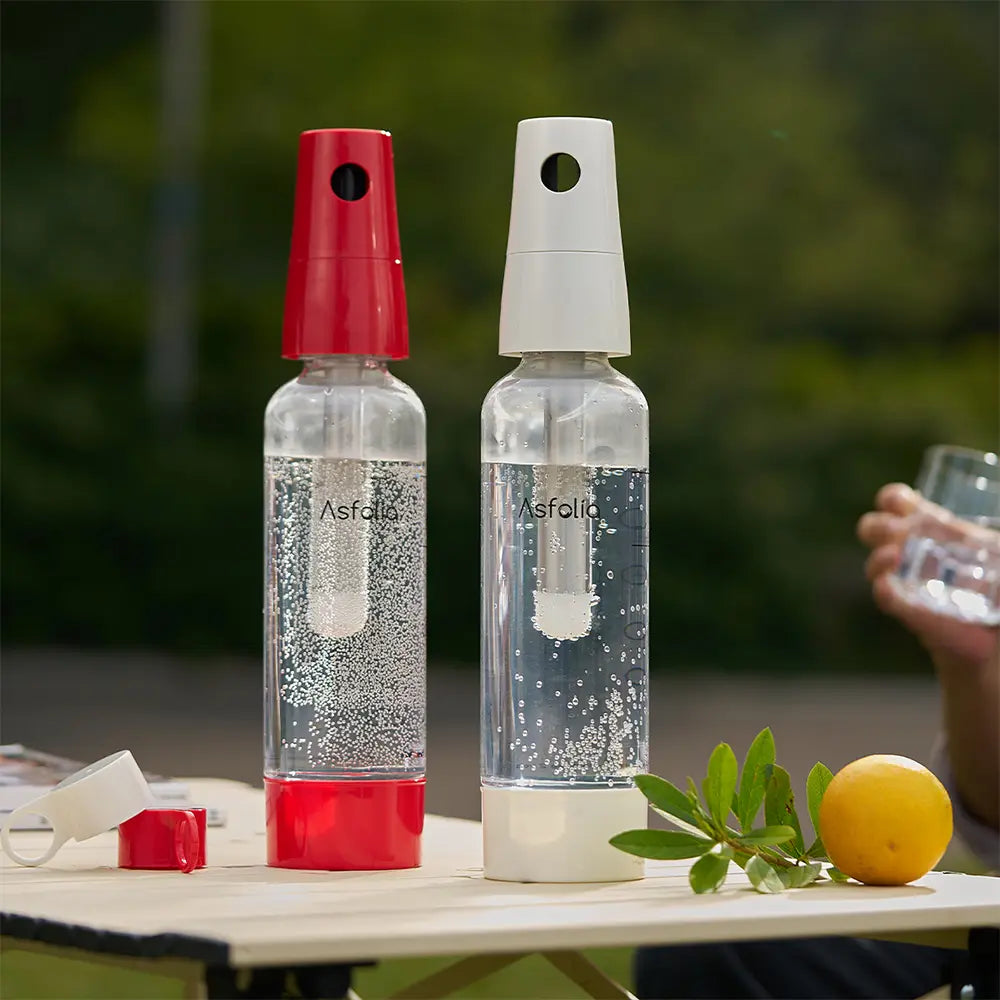
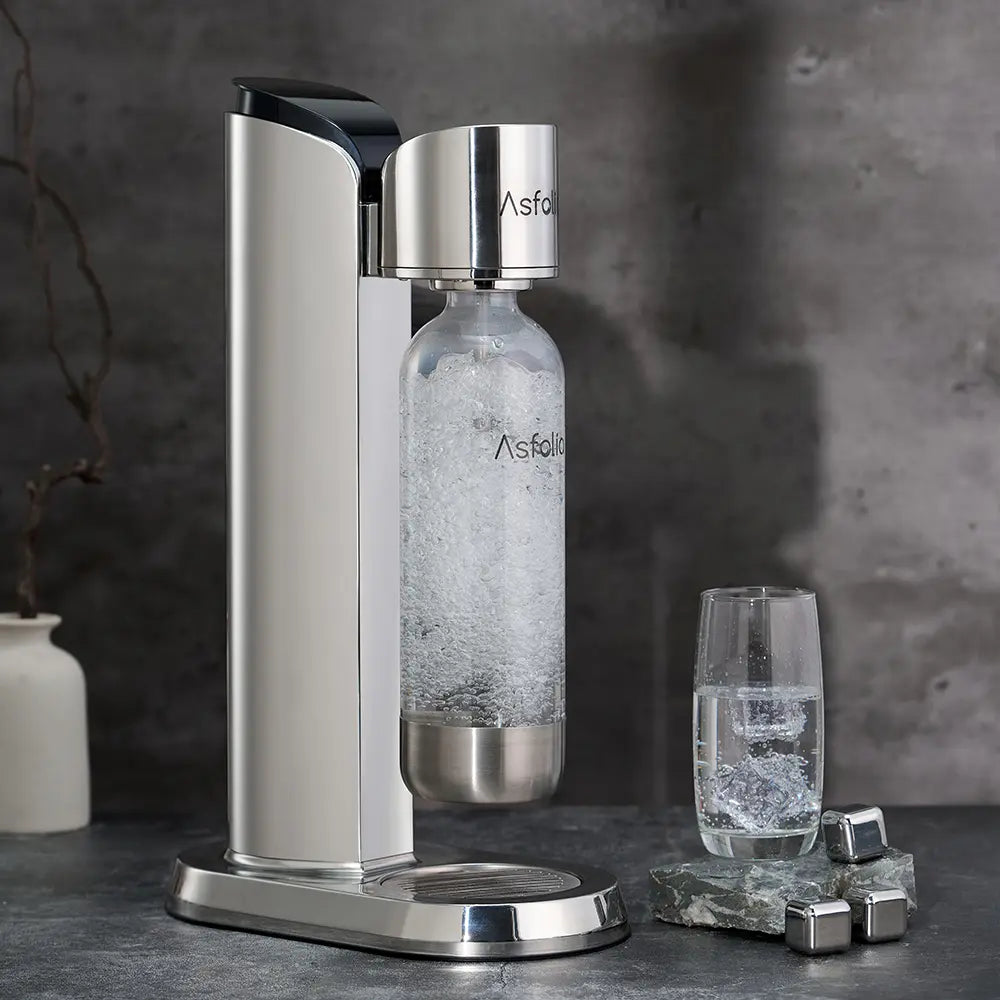
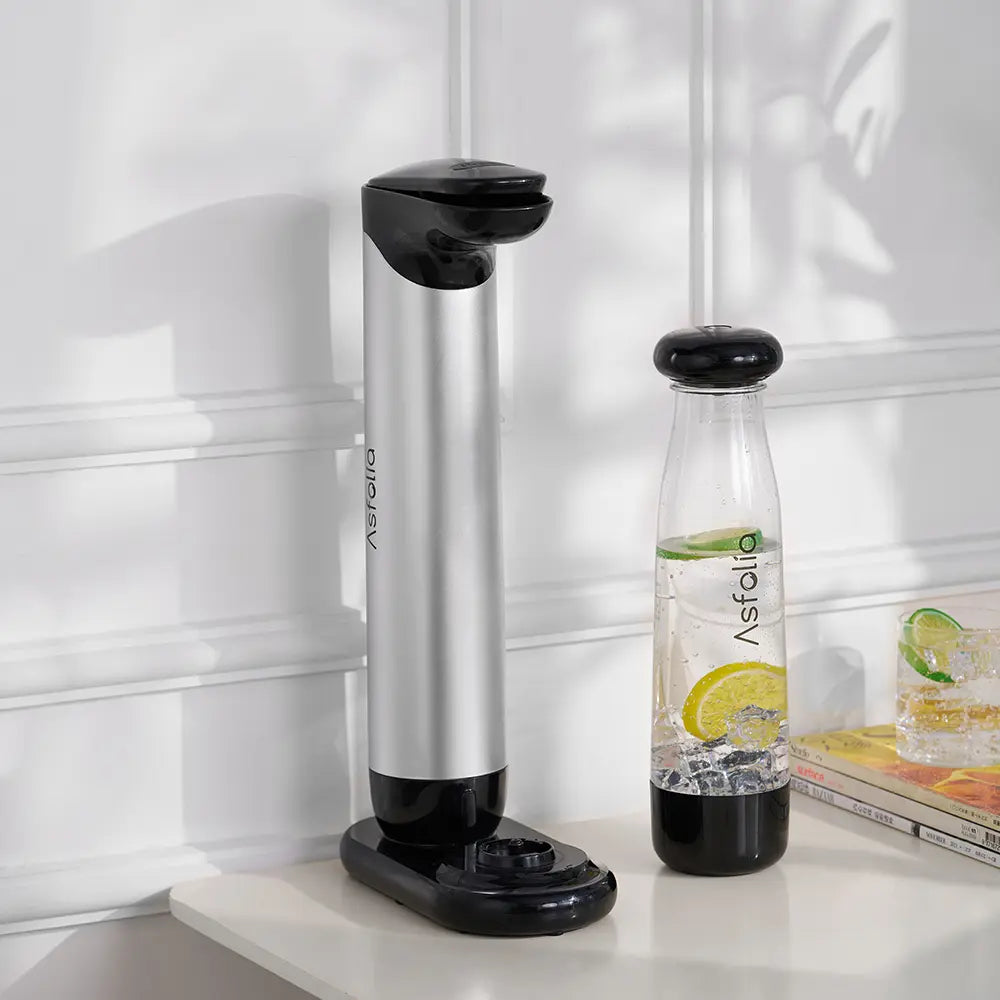
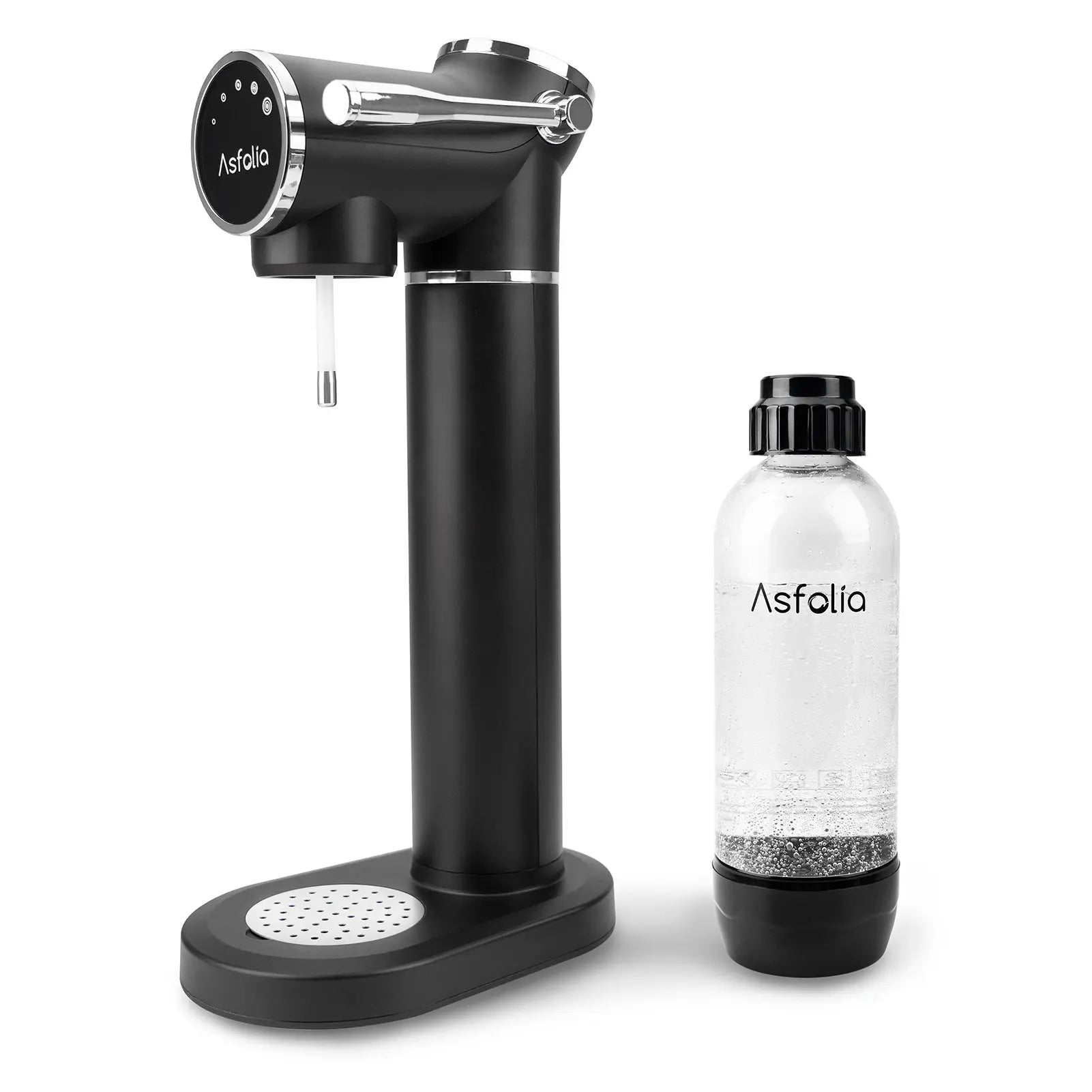
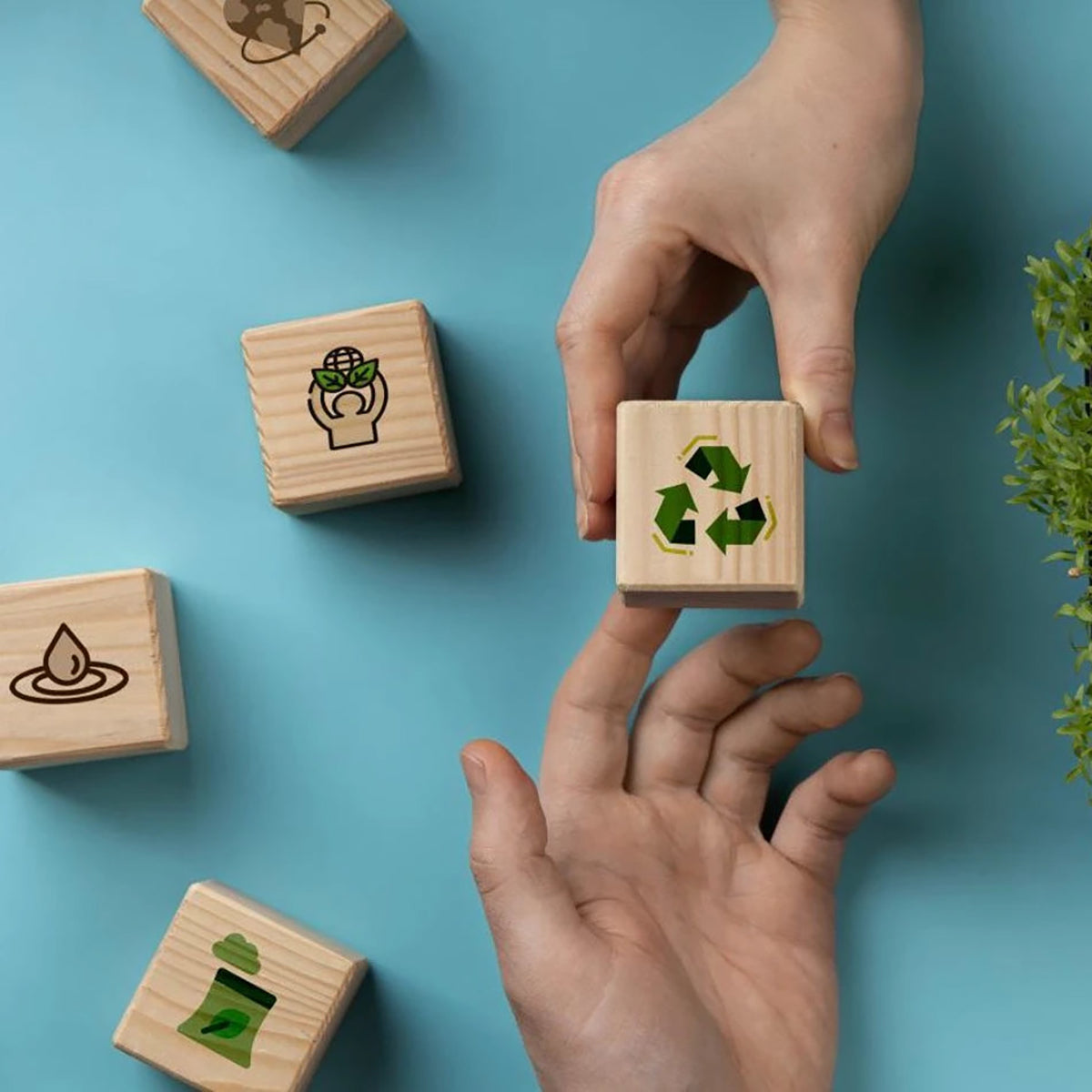
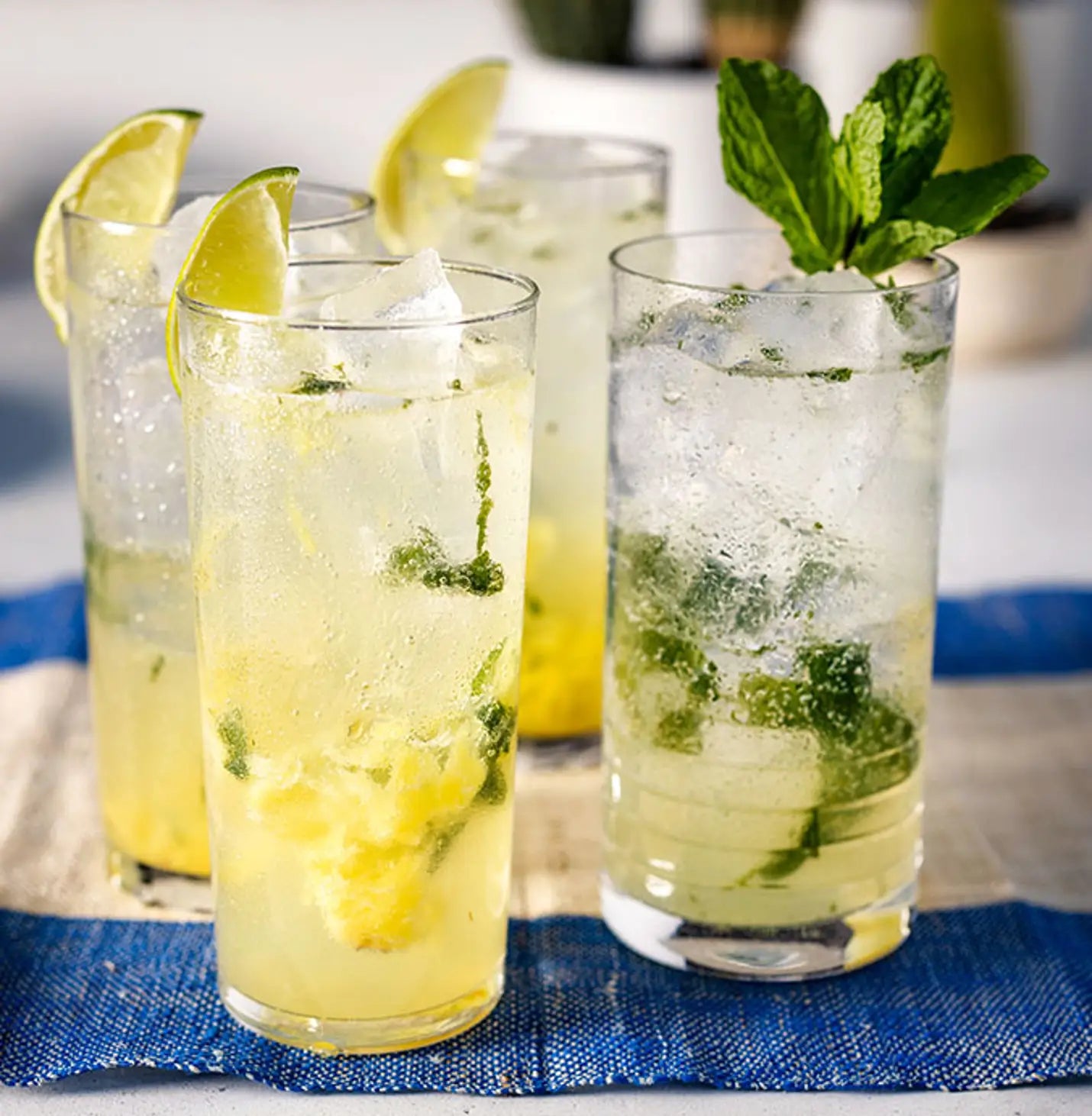
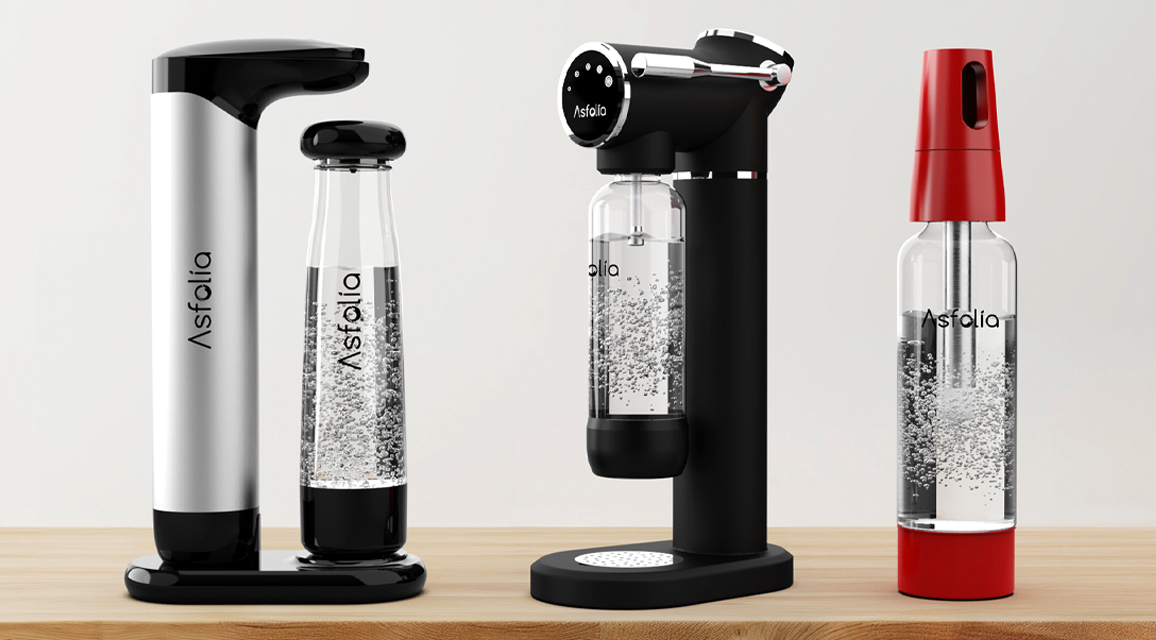
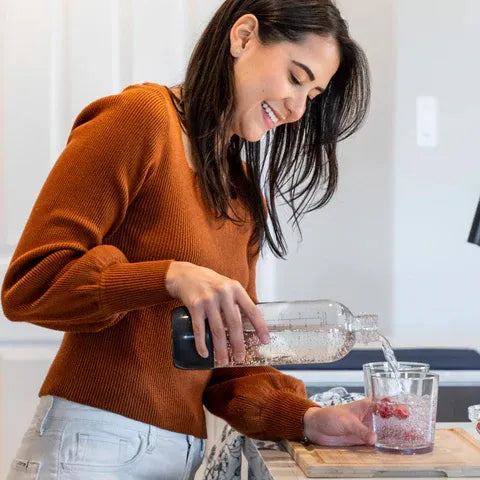
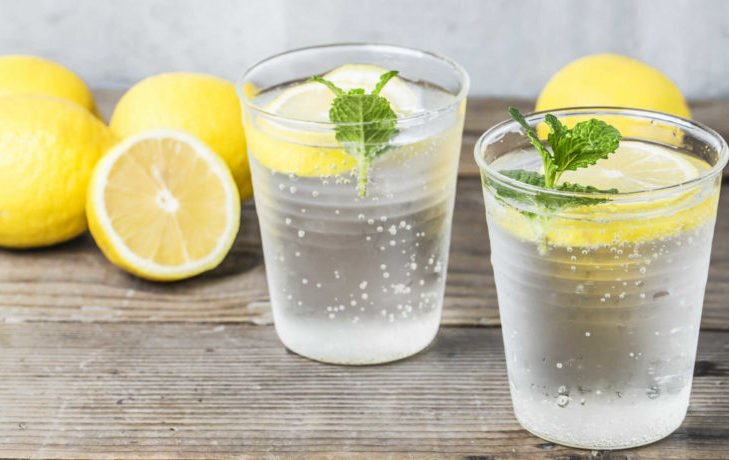

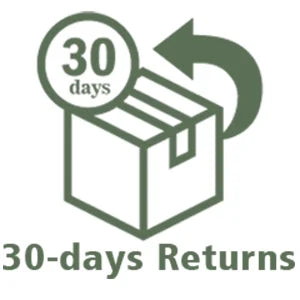





Leave a comment
This site is protected by hCaptcha and the hCaptcha Privacy Policy and Terms of Service apply.